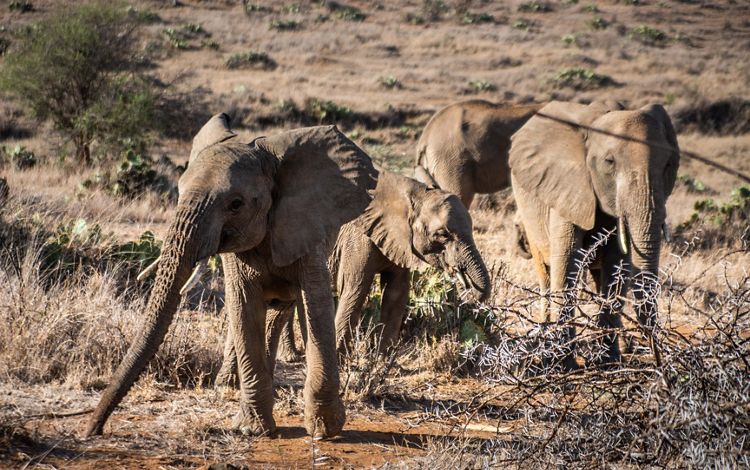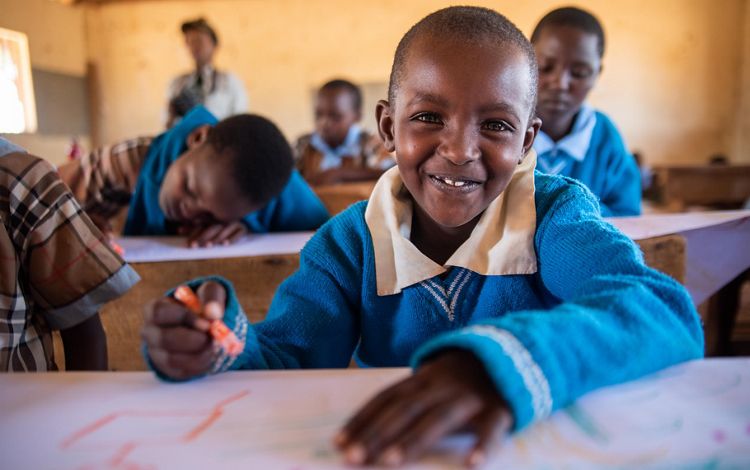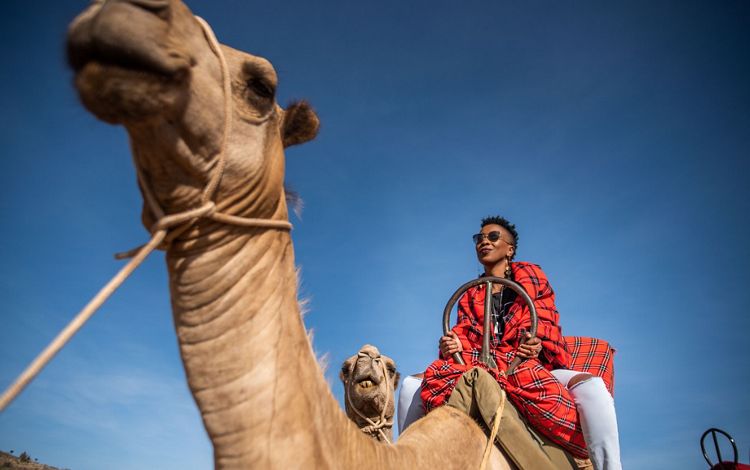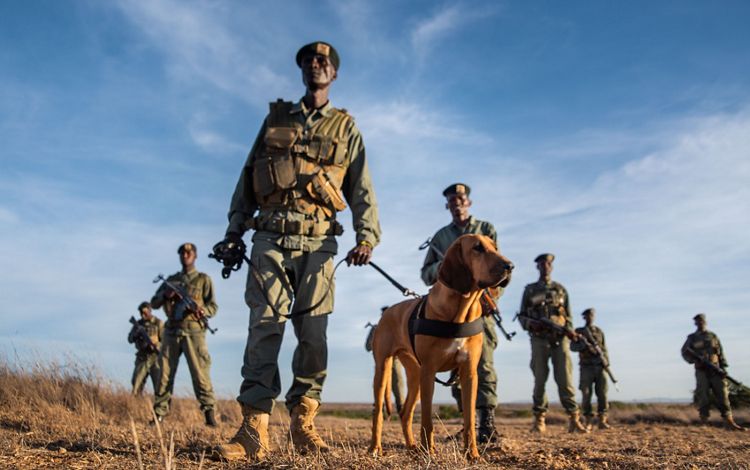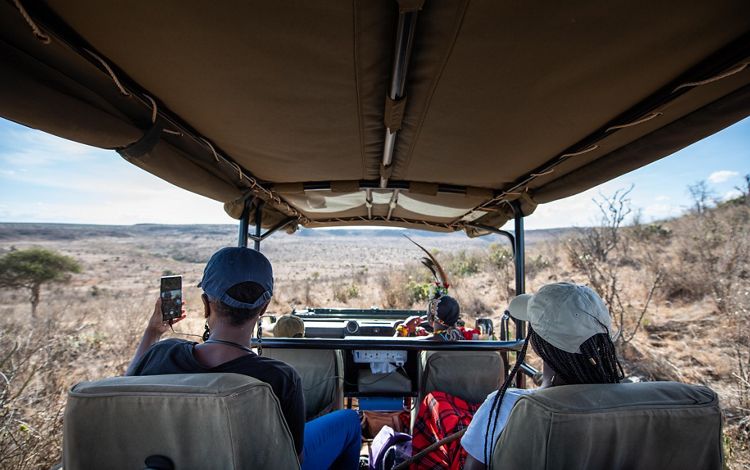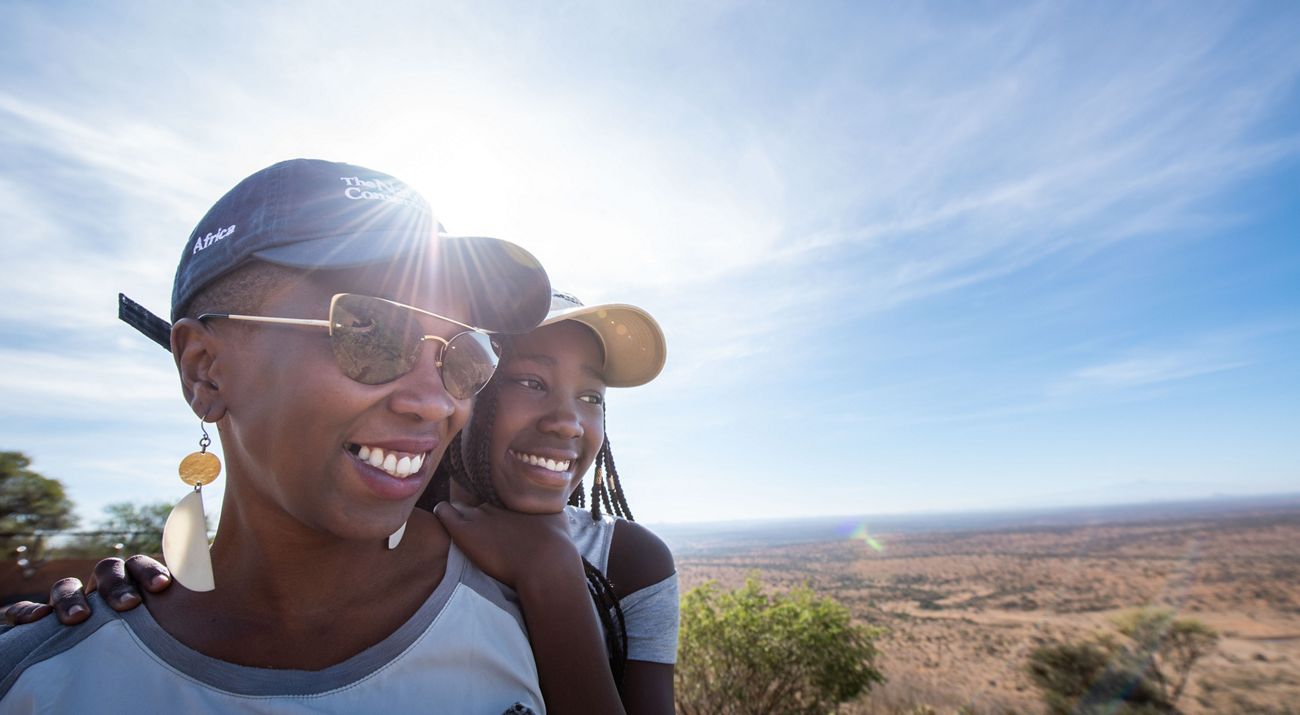Opinion: All Kenyans Must Step Up to Protect Kenya’s Natural Heritage
Young Kenyan environmental activist Tumiso Mathenge calls on government leaders to increase support of community-led conservation
An excerpt of this piece was published in The Nation on Friday, March 5.
By Tumiso Mathenge
I have always liked animals and nature since I was a small child. I came to realize that poaching was a problem on my 10th birthday when I was at the ivory burning site at the Nairobi National Park.
I heard stories of how you could line up the elephants that had been killed from there all the way to Machakos when I and my Wildlife Savers club donated funds we raised to support orphaned baby elephants. This made me realize I cannot just sit and watch wildlife die.
I began to talk about this issue, and with my Mum I went on a trip with an organisation called The Nature Conservancy, to Laikipia in 2019, to meet people taking care of their environment and living with the wildlife there.
I got to track lions with rangers using a gadget that took us to where the lions were. We came across an elephant that was so protective of its calf it looked like it was ready to attack us - it was extremely scary.
I took a camel ride and visited a homestead where we bought products from women making jewelry. I met pastoralists watching over their cattle. I went to a school where the students were around my age, and visited a clinic, both supported by the Loisaba Conservancy, which hosted us on the trip.
Everyone we met, rangers, staff at the hotel, the beaders, the camel owners, were earning a living from tourism.
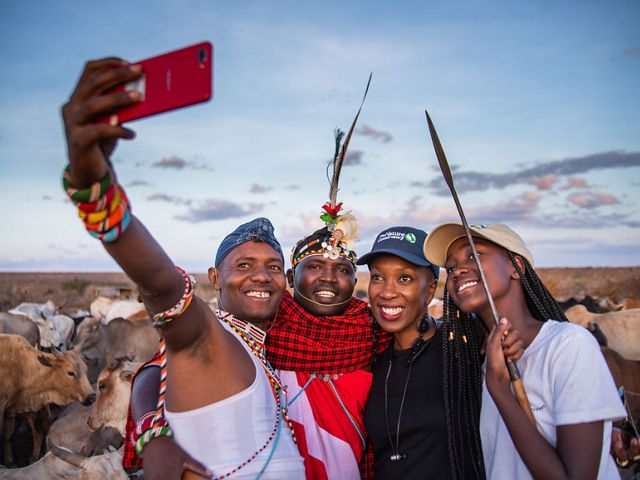
When I got back home, I shared what I learnt and saw with my classmates and through the Wildlife Club I was in. I came to realise that I am not sure that many kids my age know or care about conservation like this, led by the community.
They knew, of course, that there are people who are taking care of the animals and people who live around there but I don't think they knew that people actually get benefits from conservation.
I also feel that people do not understand how it’s not just people living with wildlife who will benefit from conservation. All Kenyans benefit. But many don’t understand how they benefit, so they say, ‘why should we care about it?’.
We need to stop being selfish. We need to make more time to travel around the country, go to different communities and environments so that we can learn their cultures, and learn to understand them.
This is important because this is our country. People from outside Kenya spend a lot of money to get here just to see our animals - that tells you how valuable they are. And we should not take them for granted because the way we are going, many of these animals are going to be extinct.
And only when they are extinct will we start appreciating them, but we cannot do anything for them if they are already all dead. Once you interact with them, you gain more passion - if you don't know them, you don't care what happens to them.
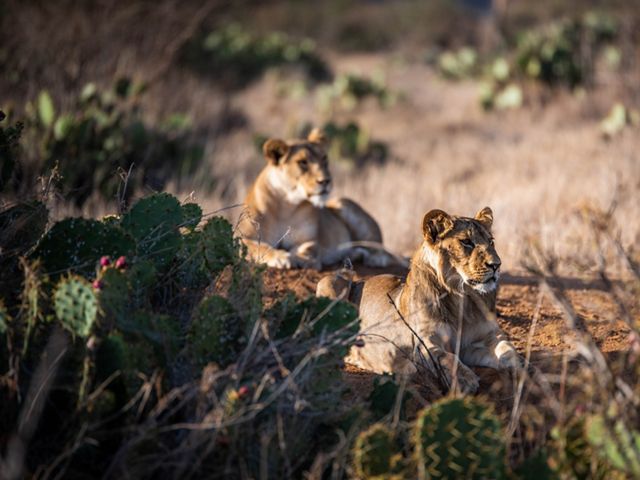
Leaders need to make lack of conservation a big deal as few people know it is a very serious situation. By the time people realise it is serious, it will already be gone. And then there's nothing we can do about it.
You who are our leaders, you are not in power so you can earn and not solve any of the problems. You need to do your job because the people are your employers. You need to step up in all fields, do your job or you will get fired.
If this does not happen it is we the youth who will have to deal with the consequences of poaching and animal extinction. Kenya won't be earning enough money as we could, and when we're already not rich, we will struggle more.
But at the same time, we can’t just blame the government for everything. We all have a role to play, and we as the youth, Generation Z, need to speak up - we are a very powerful generation. What we say goes.
We have highlighted so many things as a big problem and before long, we were solving them! So, if we see conservation as a big problem, then it can be solved. There is power in numbers and we need the numbers.
It is not one person or two or three who are going to solve it. This is something that needs a whole nation to help. Find your own way of helping. Speak to leaders, speak to people who have money, tell them they have to use their money not only for them but for the greater good, and for the environment.
If not, we will suffer a great loss of our heritage, our culture, our individuality, our uniqueness. It would be like we were losing Kenya itself. If we've been given this gift, why do we want to lose it?
Tumiso Mathenge is 14. She is an environmental and wildlife enthusiast and spends time pursuing this through the Kijani Gang and her club Wildlife Savers.
Watch a recorded video discussion between Tumiso and Gertrude Seela of Maasai Mara Wildlife Conservancies Association about community-led conservation.
Highlights from Tumiso's Trip
